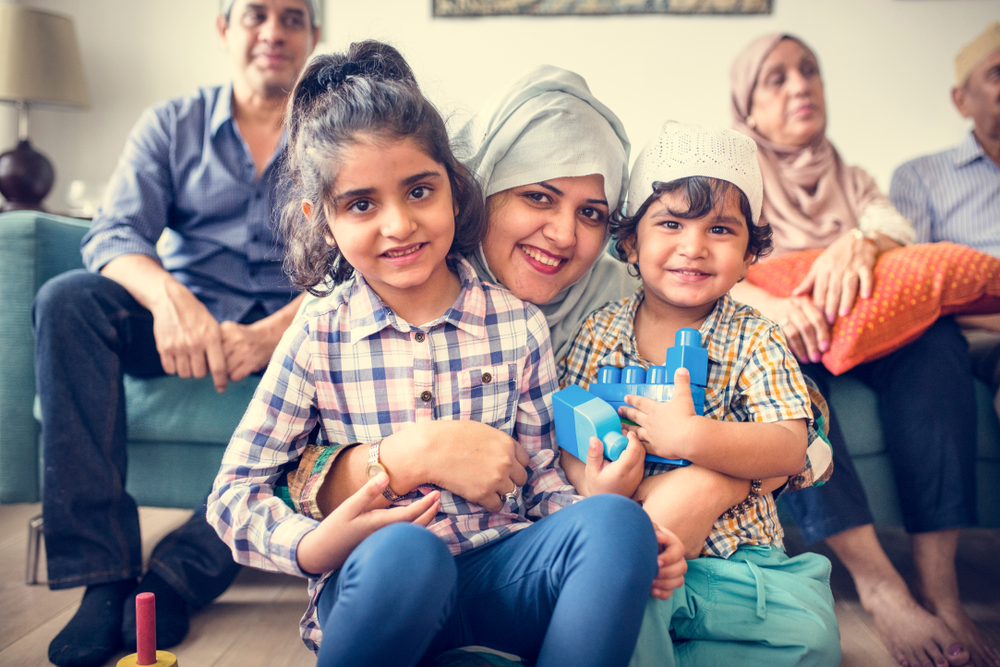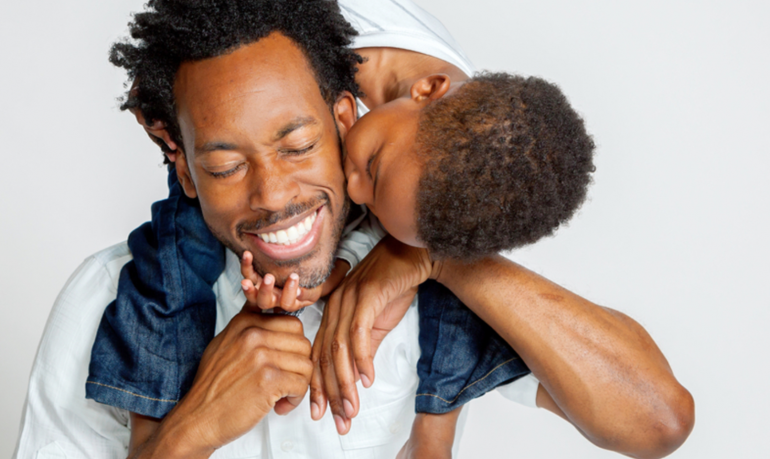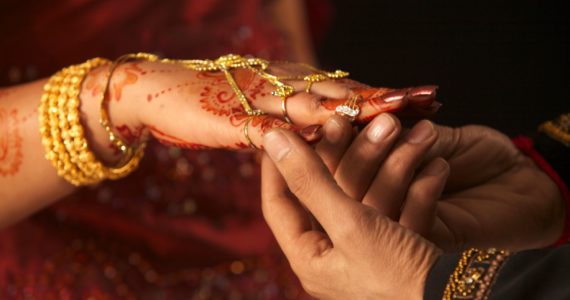Source: https://muslimmatters.org/2019/04/10/are-you-prepared-for-marriage-and-family/
Source: https://muslimmatters.org/2019/04/10/are-you-prepared-for-marriage-and-family/
Published: April 10, 2019
By Mona Aslam
High School is that time which is ideal for preparing yourself for the rest of your life. There is so much excitement and opportunity. Youth is a time of energy, growth, health, beauty, and adventure. Along with the thrill of being one of the best times of life, there is a definite lack of life experience. In your youth, you end up depending on your own judgments as well as the advice of others who are further along the path. Your own judgments usually come from your own knowledge, assumptions, likes, and dislikes. No matter how wise, mature, or well-intended a youth is compared to his or her peers, the inherent lack of life experience can also mislead that person to go down a path which is not serving them or their loved ones best. A youth may walk into mistakes without knowing, or get themselves into trouble resulting from naivety.
Salma and Yousef:
Salma and Yousef had grown up in the same community for many years. They had gone to the same masjid and attended youth group together during high school. After going off to college for a few years, both were back in town and found that they would make good prospects for marriage for each other. Yousef was moving along his career path, and Salma looked forward to her new relationship. Yousef was happy to settle down. The first few months after marriage were hectic: getting a new place, organizing, managing new jobs and extended family. After a few months, they began to wonder when things would settle down and be like the vision they had about married life.
Later with valuable life experience, we come to realize that the ideas we had in our youth about marriage and family are far from what are they are in reality. The things that we thought mattered in high school, may not matter as much, and the things that we took for granted really matter a lot more than we realized. In retrospect, we learn that marriage is not simply a door that we walk through which changes our life, but something that each young Muslim and Muslima should be preparing for individually through observation, introspection, and reflection. In order to prepare for marriage, each person must intend to want to be the best person he or she can be in that role. There is a conscious process that they must put themselves through.
This conscious process should begin in youth. Waiting until marriage to start this process is all too late. We must really start preparing for marriage as a conscious part of our growth, self-development, and character building from a young age. The more prepared we are internally, the better off we will be in the process of marriage. The best analogy would be the stronger the structure and foundation of a building, the better that building will be able to serve its purpose and withstand the environment. Another way to think of this process is like planting a seed. We plant a seed long before the harvest, but the more time, care, and attention, the more beautiful and beneficial the fruits will be.
Sarah and Hasan:
Hasan grew up on the East Coast. He had gone to boarding school all through high school, especially since his parents had died in an unfortunate accident. His next of kin was his aunt and uncle, who managed his finances, and cared for him when school was not in session. Hasan was safe and comfortable with his aunt and uncle, but he always felt there was something missing in his life. During his college years, Hasan was introduced to Sarah and eventually they decided to get married.
The first week of his new job, Hasan caught a really bad case of the flu that made it hard for him to get his projects done. Groggy in bed, he sees Sarah appear with a tray of soup and medicine every day until he felt better. Nobody had ever done that for him before. He remembered the “mawaddah and rahmah” that the Quran spoke of.
Knowledge, Skills, and Understanding:
The process of growing into that person who is ready to start a family is that we need to first to be aware of ourselves and be aware of others around us. We have to have knowledge of ourselves and our environment. With time, reflection and life experience, that knowledge activates into understanding and wisdom. This activity the ability to make choices between right and wrong, and predict how our actions will affect others related to us.
Preview:
This series is made up of several parts which make up a unit about preparation for family life. Some of the topics covered include:
- The Family Unit In Islam
- Characteristics of an Individual Needed for Family Life
- The Nuclear Family
- The Extended Family
Hamza and Tamika
Tamika and Hamza got married six months ago. Tamika was getting her teacher certification in night school and started her first daytime teaching job at the local elementary school. She was shocked at the amount of energy it took to manage second graders. She thought teaching was about writing on a board and reading books to kids, but found out it had a lot more to do with discipline, speaking loudly, and chasing them around. This week she had state testing for the students and her finals at night school. She was not sure how to balance all this with her new home duties. One day feeling despair, she walked in her kitchen and found a surprise. Hamza had prepared a beautiful delicious dinner for them that would last a few days, and the home looked extra clean too. Tamika was pleasantly surprised and remembered the example of our Prophet Muhammad .
The Family Unit in Islam
We always have to start with the beginning. We have to ask, “What is the family unit in Islam?” To answer this we take a step further back, asking, “What is the world-wide definition of family? Is it the same for all people? Of course not. “Family” means a lot of different things to a lot of different people across the world. As Muslims, what family means to us, is affected by culture and values, as well as our own understanding of Islam.
The world-wide definition of family is a group of people who are related to each other through blood or marriage. Beyond this point, is where there are many differences in views. Some people vary on how distantly related to consider a family. In some cultures, family is assumed to be only the nuclear family, consisting of mom dad and kids only. Other cultures assume family includes an extended family. Another large discrepancy lies in defining family roles and responsibilities. Various cultures promote different behavioral norms for different genders or roles in the family. For example, some cultures promote women staying at home in a life of luxury, while others esteem women joining the workforce while raising their kids on the side. Living styles vary too, where some cultures prefer individual family homes, while in other parts of the world extended families live together in large buildings always interacting with each other.

Layla and Ibrahim
Layla and Ibrahim met at summer retreat where spirituality was the focus, and scholars were teaching them all day. Neither of them was seriously considering getting married, but one of the retreat teachers thought they might make a good match. It seemed like a fairytale, and the retreat gave them an extra spiritual high. Layla could not imagine anything going wrong. She was half Italian and half Egyptian, and Ibrahim came from a desi family. Soon after the nikah, Layla moved across the country into Ibrahim’s family home, where his parents, three siblings, and grandmother lived. Come Ramadan, Layla’s mother-in-law, Ruqayya, was buying her new clothes to wear to the masjid. It was out of love, but Sarah had never worn a shalwar kameez in all her life! Ruqayya Aunty started getting upset when Layla was not as excited about the clothes as she was.
As Eid approached, Layla had just picked a cute dress from the department store that she was looking forward to wearing. Yet again, her mother-in-law had other plans for her.
Layla was getting upset inside. It was the night before Eid and the last thing she wanted to do was fight with her new husband. She did not want that stress, especially because they all lived together. At this point, Layla started looking through her Islamic lecture notes. She wanted to know, was this request from her mother-in-law a part of the culture, or was it part of the religion?
Marriage
The basis of all families, undoubtedly, is the institution of marriage. In the Islamic model, the marriage consists of a husband and a wife. In broad terms, marriage is the commitment of two individuals towards each other and their children to live and work together to meet and support each other’s needs in the way that they see fit. What needs they meet vary as well, from person to person, and family to family. The marriage bond must sustain the weight of fulfilling first their own obligations toward each other. This is the priority. The marriage must also be strong enough to hold the responsibility of raising the kids, and then the extended family.
How are we as Muslims unique and what makes us different from other family models? We are responsible to Allah. The end goals are what makes us different, and the method in which we work. In other family systems, beliefs are different, goals are different, and the motives are different. Methods can especially be different. In the end, it is quite a different system. What makes us better? Not because we say we are better or because we automatically feel better about ourselves due to a misplaced feeling of superiority. But instead it is because we are adhering to the system put in place by the most perfect God, Allah, the Creator and Sustainer of all the worlds, the One Who knows best what it is we need.
Family Roles:
Each person in the family has a role which Allah has meant for them to have, and which ethics and common sense tell us to follow. However, our nafs and ego can easily misguide us to live our family life in the wrong way, which is harmful and keeps us suffering. Suffering can take place in many ways. It can take place in the form of neglect or abuse. In the spectrum of right and wrong, Allah tells us that we are a nation meant for the middle path. So we should not go to any extreme in neglect or abuse.
What are the consequences of mishandling our family roles? Allah calls this type of wrongdoing “transgression” or “oppression”. There are definitely consequences of oppression, abuse, and neglect. There are worldly consequences which we feel in this life, and there are long term consequences in the Akhirah.
Razan and Farhaan
Razan and Farhan had gotten married two years ago. Since they were from different towns, Razan would have to move to Farhaan’s hometown. On top of the change of married life, Razan felt pangs of homesickness and did not know many people in the new town. However, Farhaan did not realize what she was going through. He still had the same friends he grew up with for years. They had a die-hard routine to go to football games on Friday night and play basketball on Saturday at the rec center.
Razan was losing her patience. How could he think it was okay to go out with his friends twice on the weekend? Yet he expected her to keep the home together? Her blood started to boil. What does Islam say about this?
Mawaddah and Rahma
The starting point of a family is a healthy relationship between the husband and wife. Allah SWT prescribed in Surah 25: verse 74, that the marriage relationship is supposed to be built on Mawaddah (compassion) and Rahma (mercy). A loving family environment responds to both the needs of the children and the needs of parents. Good parenting prepares children to become responsible adults.
Aliyaah and Irwan
Aliyaah and Irwan had homeschooled their twin children, Jannah and Omar, for four years. They were cautious about where to admit their children for the next school year. Aliyaah felt that she wanted to homeschool her children for another few years. There were no Islamic Schools in their town. Irwan wanted to let his kids go to public schools. He felt that was nothing wrong with knowing how things in the real world are. However, every conversation they started about this issue ended up into a conflict or fight. This was beginning to affect their relationship.
Parenting
Two significant roles that adults in a family play are that they are married and they are parents. It is important that parents work to preserve and protect their marital relationship since it is really the pillar which supports the parenting role. Parenting is a role which Allah directly addresses in our religion. We will be asked very thoroughly about this most important role which we will all play in our lives.
There is a hadith in which the Prophet Muhammad reminds us,
“All of you are shepherds and responsible for your wards under you care. The imam is the shepherd of his subjects and is responsible for them, and a man is a shepherd of his family and is responsible for them. A woman is the shepherd of her husband’s house and is responsible for it. A servant is the shepherd of his master’s belongings and is responsible for them. A man is the shepherd of his father’s property and is responsible for them”. (Bukhari and Muslim)
Islam has placed a lot of importance on the family unit. A family is the basic building block of Islam. A strong family can facilitate positive social change within itself and the society as a whole. The Quran asserts that human beings are entrusted by their Creator to be his trustees on Earth, thus they need to be trained and prepared for the task of trusteeship (isthiklaf).
Asa youth, it is important to make a concerted effort to develop our family skills so that we grow into that role smoothly. Proper development will prepare a person emotionally, mentally, spiritually, and physically for marriage and family life.
Mona Islam is a youth worker, community builder, motivational speaker, writer, and author. For the past 25 years, Sr. Mona has been on the forefront of her passion both locally and nationally, which is inculcating character development in youth (tarbiyah). Sr. Mona has extensiveknowledge of Islamic sciences through the privilege of studying under many scholars and traveling worldwide. An educator by profession, she is a published author, completed her masters in Educational Admin and currently doing her doctorate in Curriculum and Instruction. Sr. Mona is married with five children and lives in Houston, TX.








